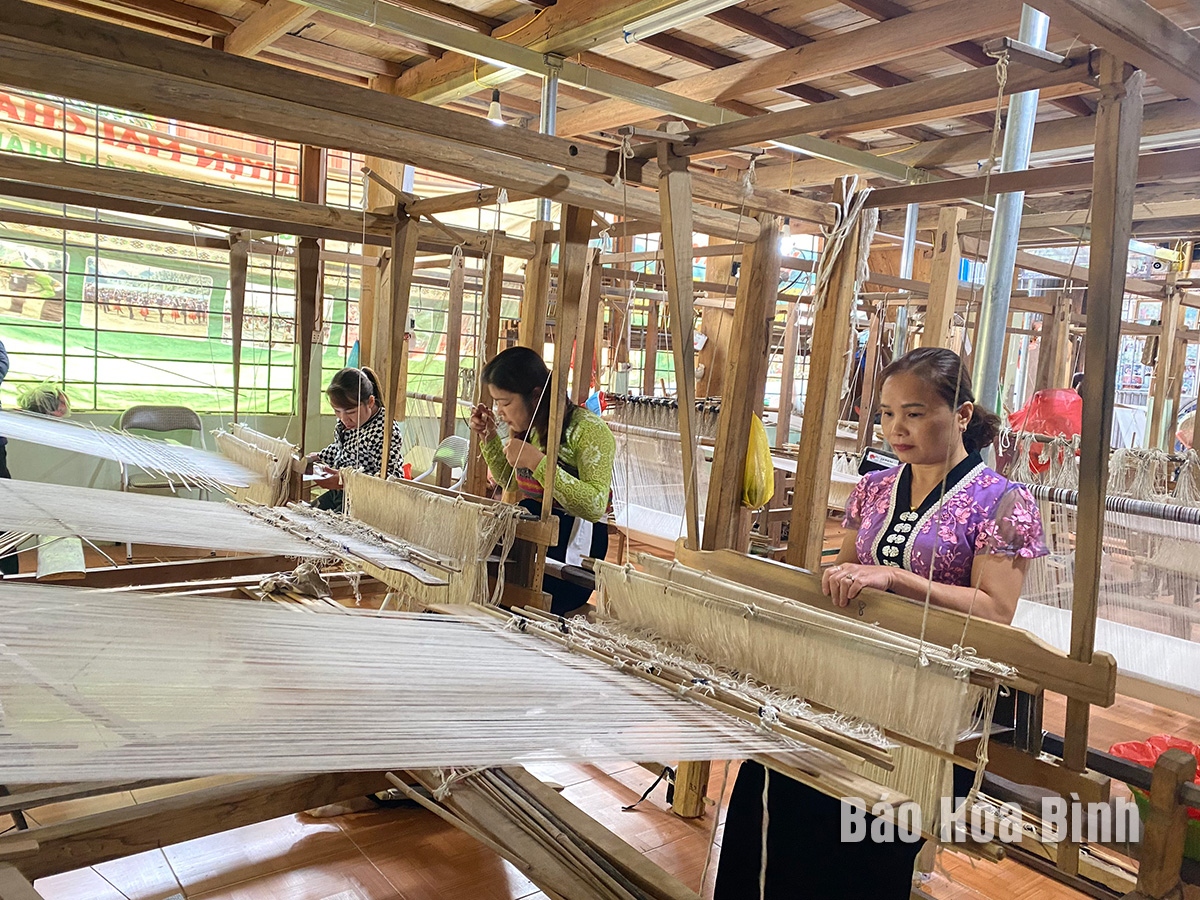
In Hoa Binh province, 11 traditional craft villages with more than 400 small-scaled production households have put in place a clean and green production model, establishing new standards for sustainable development. Waste collection sites and wastewater treatment facilities have been meticulously managed by local residents.

Chieng Chau commune in Mai Chau district has paid due attention to building
green craft villages towards sustainable development.
Before
the concept of "green craft villages" emerged, many craft zones in
the province suffered from pollution caused by smoke, dust, chemical odours,
and waste from workshop operations. The conflict between economic development
and environmental protection had been a difficult puzzle to solve for years in
traditional craft villages.
In
recent years, many rural areas have stopped waste burning. Stone processing
workshops now spray materials with water before cutting to prevent dust, and
debris is collected rather than dumped into streams. Meanwhile, brick kilns that
once released thick smoke have been upgraded, with many facilities switching
entirely to non-fired brick production
Raising
public awareness is the key to environmental protection. In 2020-2022, the
province organised more than 180 workshops and training sessions on
environmental protection, along with more than 100 drives for collection of
pesticide packaging, attracting over 4,000 participants.
Furthermore,
environmental protection messaging has been integrated into the spiritual and
cultural life of communities through four theatrical exchanges, drawing
competitions, contests, and many more.
Rather
than top-down directives, local citizens have been empowered through grassroots
initiatives like "residential areas of self-managed environmental protection".
Village-based teams now enforce regular cleaning schedules, while small
workshops have invested in wastewater treatment systems, dust barriers, and
proper safety equipment.
Many
of Hoa Binh's craft villages now serve as models for sustainable production. In
Tan My commune, once severely polluted, residents have implemented biogas
systems, waste separation, and strategic greenery. These efforts have
revitalised formerly contaminated rice fields and restored clean air.
Hoa Binh province is undergoing a dynamic transformation amid Vietnam’s national digital transition. Building on Poliburo’s Resolution No. 57-NQ/TW on breakthroughs in science, technology, innovation, and national digital transformation, the province has rolled out a wide range of practical action plans. A standout initiative is the "Digital Literacy for All” movement, an effort to ensure that no one is left behind in the digital era.
Hoa Binh province is undergoing a dynamic transformation in the wake of the national digital transformation movement. Building on Resolution No. 57-NQ/TW of the Politburo on breakthroughs in science, technology, innovation, and national digital transformation, the province has implemented a wide range of practical action plans. A standout initiative is the "Digital Literacy for All” movement ambitious effort to ensure that no one is left behind in the digital age.
With a spirit of unity and proactive problem-solving, the Party Committee, the government and the people of Dong Lai Commune (Tan Lac District) have made great strides in implementing the resolutions of the 24th Party Congress of the commune for the 2020 - 2025 term. Focusing on leadership and practical actions, the commune has brought the Party’s resolutions into daily life, creating strong impacts and pushing the local development forward.
Amid the nationwide push for digital transformation, young people in Hoa Binh Province are stepping up as dynamic pioneers, applying technology to enhance Youth Union operations and expand the reach of youth-led initiatives. Through creativity and adaptability, Youth Union organizations at all levels have introduced a series of practical solutions, contributing to modern governance and community development.
In recent years, An Nghia commune, located in Lac Son district, has stepped up administrative reform, focusing on improving the quality and efficiency of its single-window service unit for receiving and processing administrative procedures. These improvements have helped create favourable conditions for local residents and organisations to handle administrative procedures, contributing to the commune’s broader socio-economic development.
The Prime Minister-approved master plan to develop the multi-use value of forests ecosystems through 2030, with a vision to 2050, aims to improve the management and sustainable use of forest resources, create jobs, increase incomes, and improve the living standards of ethnic minorities, people in mountainous and remote areas, forest workers and those living near forests.



